Rome is dotted with monumental and beautiful fountains, to which you can confide your wishes and to which you can give a coin. Fountains that often hide fascinating stories. Like the tale of two brilliant artists who have always been opposed to each other and a pope ready to leave his mark on the Eternal City.
Ph. Nino Costa
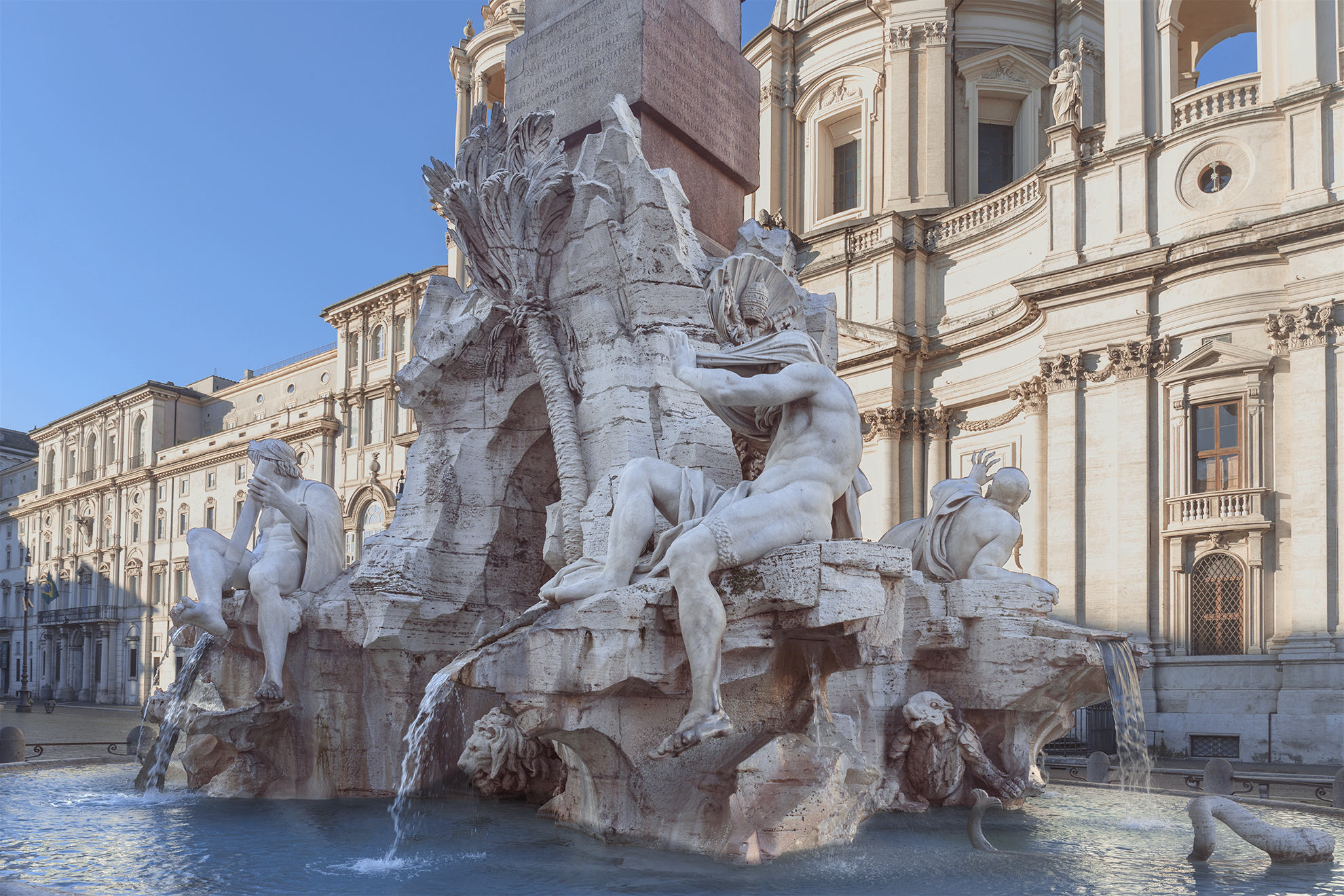
They seem like the elements for a TV series. Instead, it's the story of the Rivers Fountain. The pope was Innocenzo X Pamphilj, the two artists who have always been rivals, Gian Lorenzo Bernini and Francesco Borromini. Pamphilj wanted a majestic fountain in the center of Piazza Navona, in front of the family palace Borromini was also working on. At first it was decided to entrust him with the construction of the fountain: the artist created a system to carry the water of the aqueduct known as Acqua Vergine and presented a design of the project which included the restoration of an obelisk of the time of Domitian.
The Danube representing Europe and at the top the Pamphili coat of arms | Ph. Nino Costa
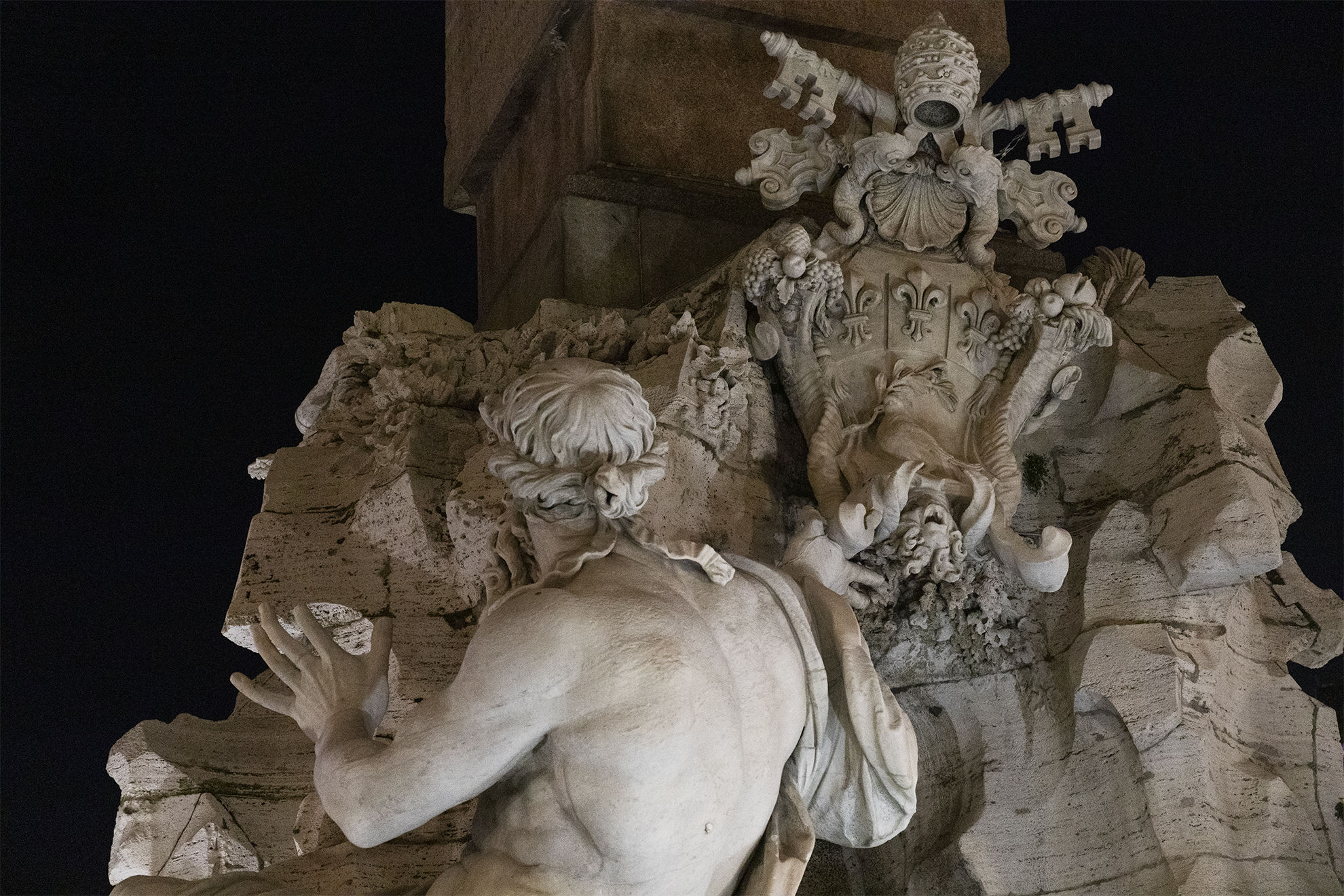
But things turned out differently. It was Cavalier Bernini who prevailed, thanks to his ability to persuade, his indisputable art and his influence on people close to the pope. The sculptor convinced Innocent X that his design would glorify the name of the Pamphilj all over the world, and the whole world would be contained in that fountain.
The Nile representing Africa | Ph. Nino Costa
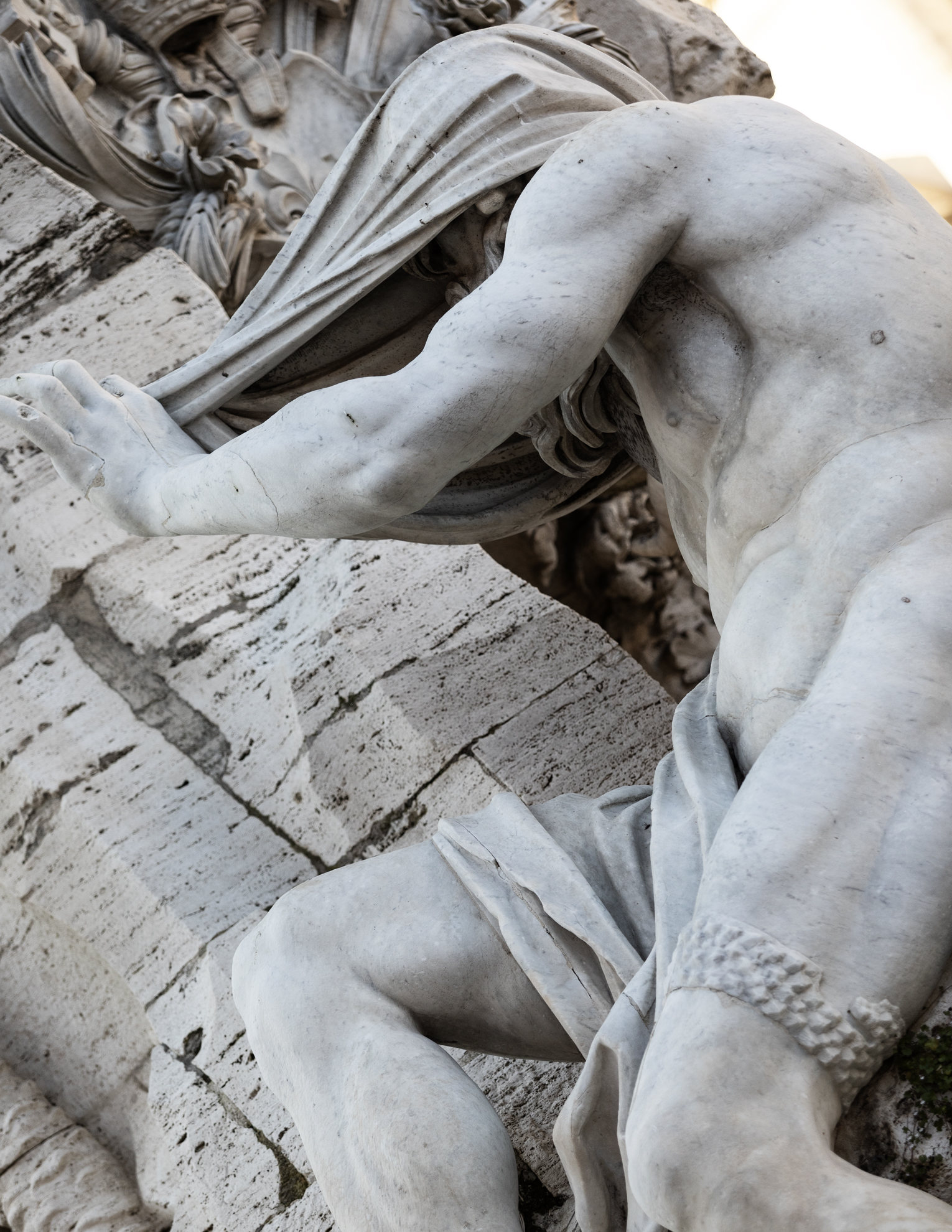
A crocodile camouflages itself in the fountain | Ph. Nino Costa
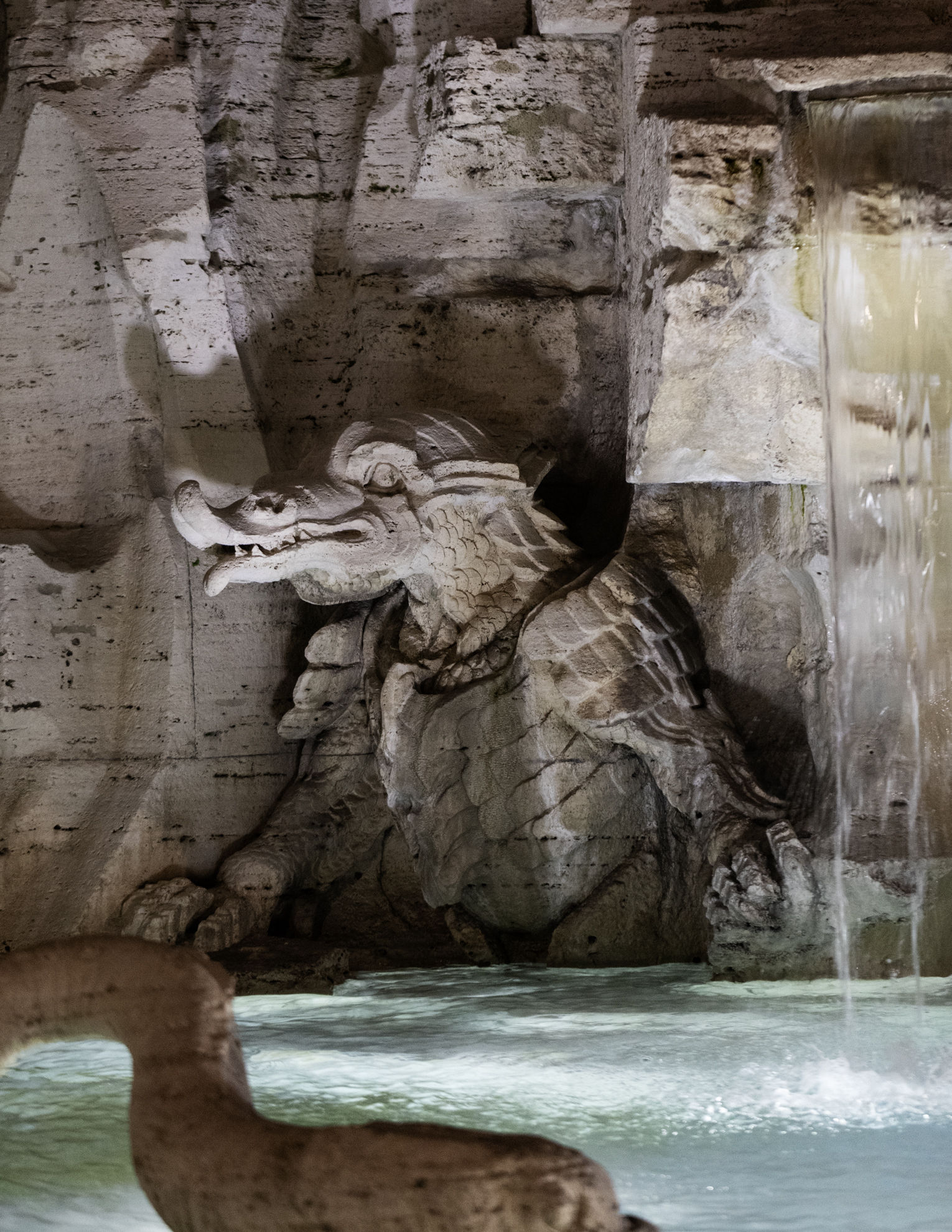
A bronze dove, symbol of peace but also symbol of the Pamphilj family, stands in the sky of Rome above the granite obelisk. It seems to have always been in the center of the fountain but in ancient times it was along the Appian Way and it took two months to bring it to Piazza Navona; a huge wooden castle, very long ropes and Bernini's ingenuity were used to lift the blocks that make it up.
The Ganges representing Asia | Ph. Nino Costa
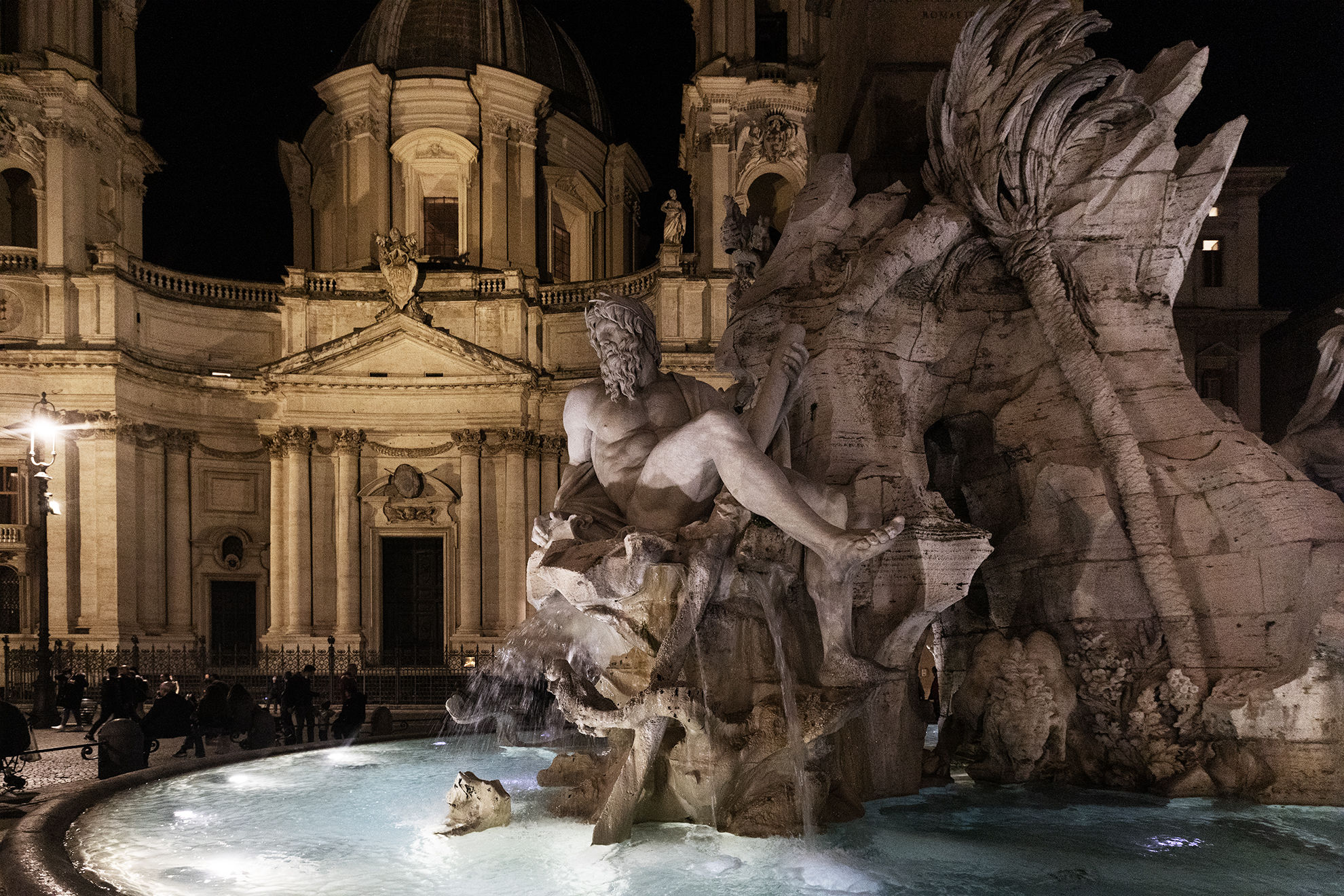
A marble landscape made of water, animals, plants and giants, an expression of Bernini's indisputable ability to give life to stone, supports the obelisk. In this jungle in the center of Rome, the details are slowly revealed and just as slowly leave you speechless. A crocodile suddenly peeps out, a horse comes out of the marble and a lion hides among the gushes and rocks. «Making a white marble look like a person, who has color, spirit and life» said the artist who, to make that nature even more real, commissioned a painter to paint the sculptures of the fountain, but unfortunately we have no trace of that color.
The Rio de la Plata representing the Americas | Ph. Nino Costa
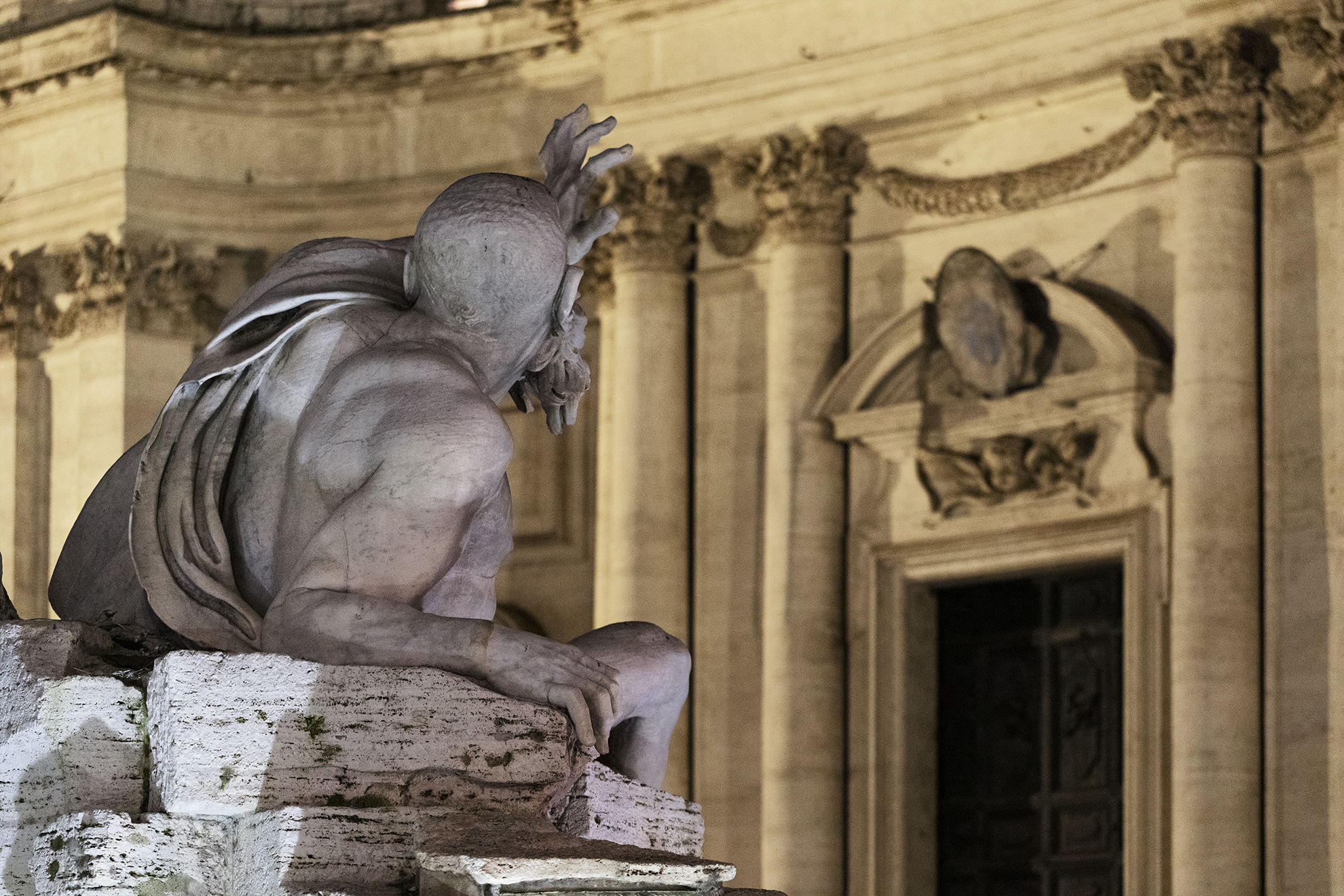
And then, there are the giants with their strong bodies, personifications of four rivers, the Ganges, the Rio della Plata, the Danube and the Nile, sculpted by four different artists under the supervision of Bernini, scenographer, architect and sculptor himself. They “move” in space and are full of vitality. One in particular raises his hand as if to protect himself: tradition says that it does so to defend itself against the collapse of the facade of the church of Sant’Agnese in Agone, designed by Borromini. A lie, because the facade was built after the fountain, which however says a lot about the bad relations between Bernini and Borromini.

